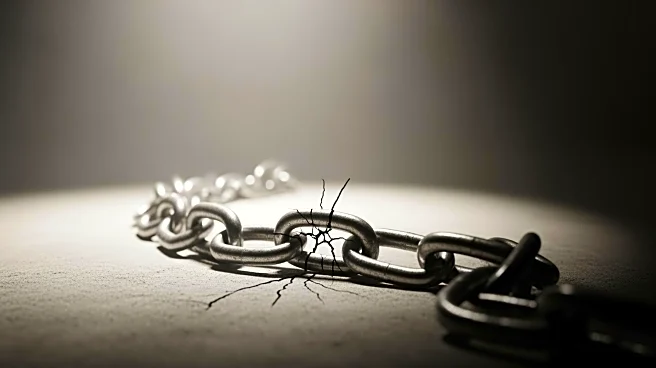What's Happening?
Hamas is actively seeking ways to retain its weapons as negotiations progress towards the next stage of the Gaza ceasefire. According to sources, senior Hamas officials have approached the Palestinian Authority to secure an arrangement for storing their
arms. Under the current ceasefire deal, Hamas is prohibited from storing, importing, or manufacturing weapons. However, the group is looking for solutions to preserve the weapons already in their possession, rather than surrendering them. A senior Hamas delegation, led by Khalil al-Hayya, has arrived in Cairo for discussions with Egyptian intelligence officials. These talks are expected to focus on governance, security, and the management of Hamas' weapons, with proposals under review that include deploying international forces for monitoring and training purposes.
Why It's Important?
The retention of weapons by Hamas poses significant challenges to the peace process in Gaza. The group's insistence on preserving its arsenal could hinder efforts to achieve long-term stability in the region. The involvement of international forces in monitoring and overseeing the weapons could be a crucial step in ensuring compliance with the ceasefire terms. This situation highlights the complexities of disarmament in conflict zones and the delicate balance required to maintain peace while addressing security concerns. The outcome of these negotiations could have broader implications for regional security and the role of international organizations in conflict resolution.
What's Next?
The next steps in the negotiations will likely involve detailed discussions on the governance and security arrangements in Gaza. The proposal to deploy international forces for monitoring and training could be a pivotal point in the talks. If agreed upon, this could lead to a gradual process of disarmament, with weapons eventually being transferred to the Palestinian Authority under international oversight. The involvement of the United Nations or Arab states in this process could provide the necessary framework for ensuring compliance and maintaining peace. The progress of these negotiations will be closely watched by regional and international stakeholders.















